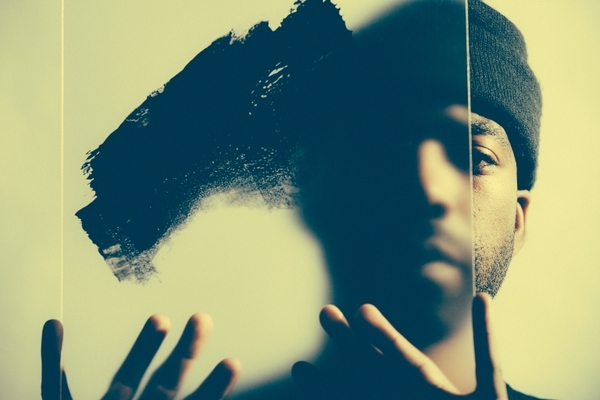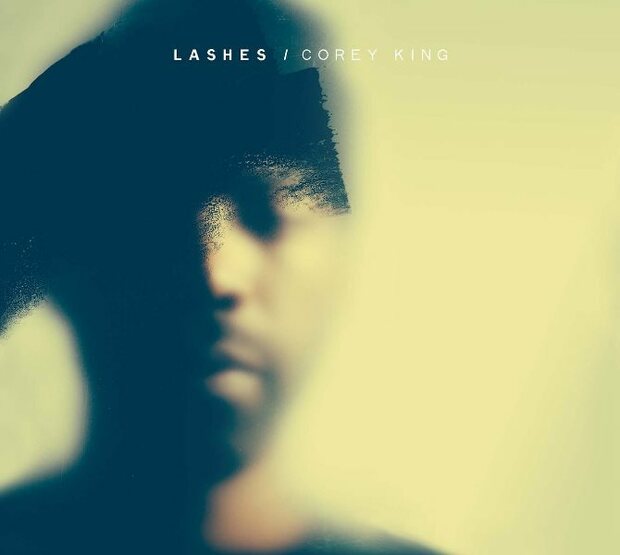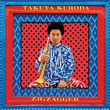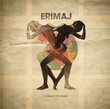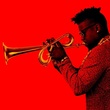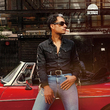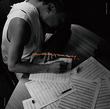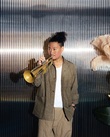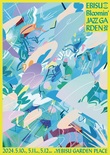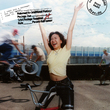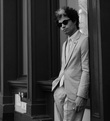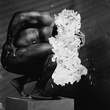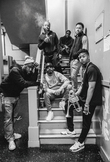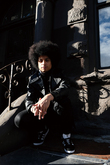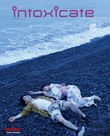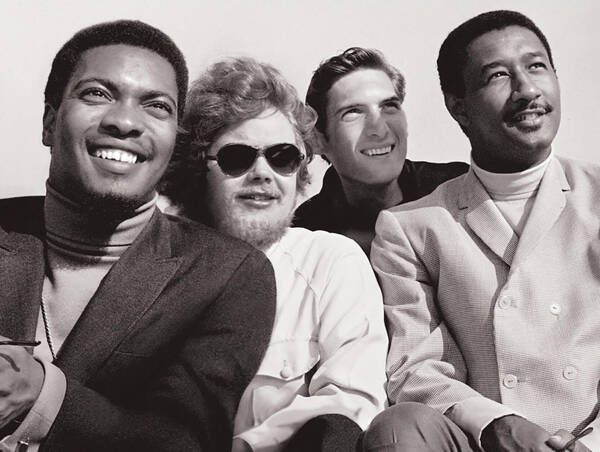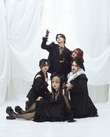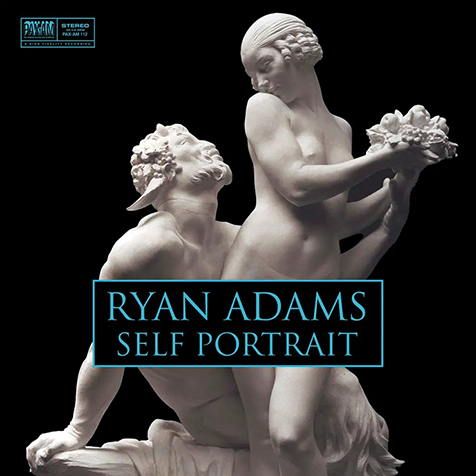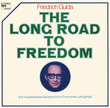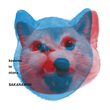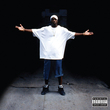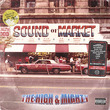
Corey King, the big gun in the modern jazz scene, talks about his latest solo record that presents Radiohead-tinged songs and acoustics at a whole new dimension, together with his soulmate, Takuya Kuroda
Interviewed and written by: Mitsutaka Nagira
Amongst many of the attention-grabbing works seen lately, such as Erimaj’s "Conflict Of A Man" (2012), Derrick Hodge’s "Live Today" (2013), Christian Scott’s "Stretch Music" (2015), Esperanza Spalding’s "Emily D+Evolution" (2016) or Takuya Kuroda’s "Zigzagger" (2016), the name we so often see is Corey King. As Kuroda speaks about the musician in his interview that “Corey is simply irreplaceable,” on top of his already-established knock-down abilities as a trombonist, King is also known for his prowess in smooth and mellow singing. In recent days, the artist’s name has become so often seen on the credits of other works such as a vocalist, backing vocals, writer, composer or as a keyboardist, proving the nonesuchness of what he is.
Corey King’s first solo release "Lashes" comes as a piece formed solely with the ‘other sides’ of the artist Here, no trombone has its say, and the lately trending neo-soul/hip hop-ish feel is nowhere to be found. A perfect balance between effective acoustics and raw, bodily sounds comes into power drawing on his vocals, synths, programming and multitrack recordings, alongside brilliant instrumentations by jazz musicians equipped with sophistications of rock. The decadent yet amorous songs seem to be the results of adopting, in an aggressively bold manner, the [approach from the jazz side in the taste of rock] stated by Spalding or Christian Scott.
Mikiki had the pleasure of sitting down with King for an interview who had visited Japan to perform at the JUJU × Takuya Kuroda joint live in August. Read how the artist built up his career, as well the behind-the-scenes of the production of the latest “Lashes” that also reveals the soundscape of his own. The interviewed also enjoyed the company of King’s best mate, Takuya Kuroda. See how they reciprocate each other’s friendship in the endearing retaliations to each other.
Robert Glasper gave me my first tours
――You started playing the trombone when you were a child.
Corey King: In the beginning, I started classical music when I was like 12. I started singing before everything, like when I was 5. When I was really young I would sing in a choir, in school and in church. I wanted to learn how to read music. We had to do solfège, but I wanted to learn how to read more to play an instrument. I would play any instrument, I didn’t really care which one, but when I went to middle-school, my band director went “You’re gonna play trombone.” Even though I wanted to play some other rhythmic instrument, I was like “Yeah, I’ll lay the trombone.
――When did you start playing jazz? Was it when you entered the arts-related high school in Houston?
King: I started jazz when I was about 15. It was the summer going into high school that I got serious about jazz.
――Is that the same school as Robert Glasper ad Chris Dave? Were there any classmates or alumni of that time who have become famous jazz musicians now?
King: There was a bunch of them. This guy named Jamire Williams* who’s a drummer, a guy who’s a little older than me – Alan Hampton, the bass player.
*Jamire Williams is the leader&drummer of the band ERIMAJ to which Corey also belongs to. Alan Hampton is a bassist who has released some singer-songwriter-esque solo works. Both of them also appear in “Lashes”.
――So this album “Lashes” is somewhat like a piece you did with your high school friends. What kind of music did you listen to or share with your friends back then?
King: There was a bunch of different stuff. Even I was studying jazz and classical music, I was also listening to a lot of rock music, a lot of hip hop music. Before I entered high school, I was into Nirvana or Radiohead. Jazz musicians were the ones that everybody listened to – like Branford Marsalis, I would listen to that kind of stuff all the time. My classmates and I were really into mixing up styles and genres of music. That’s what we would do most of our times. It wasn’t just like really traditional jazz. I’m from the Performance and Visual Arts school, and a lot of artists were doing a bunch of different stuff. We had singers who were acting, visual art artists who were painting were also singing, I was singing myself – we were doing a bunch of things and collaborating in that way. I was exposed to many things that were outside of music too.
――Were there any favorite trombone players around that time or any that you tried to learn from or try to sound like?
King: J. J. Johnson* – he played like a vocalist. To me, he just kind of sang out of the horn.
*Born 1924. A trombonist who was one of the leading trombonists for about 60 years from the genesis of the bebop era. Died 2011.
――After that you attend New School in NY from 2004. Was it from then that you started playing with Takuya?
King: That’s right.
――Are there any memorable episodes or stories with Takuya you can recall from back then?
King: Yeah. So much (laughs). We hang out a lot in New York. His home is like my second home, so it’s a lot of stuff.
Takuya Kuroda: My home in Brooklyn is like the play lot Not only Corey, but people like the Japanese video artist (Ryosuke Tanzawa) who did mine and Corey’s music video, or photographers come and visit my place very often. We’re all music lovers, so we simply hook our iPhones up (to the stereo) and sip on our drinks to our favorite tunes. It’s something like the spot for cultural exchange. You can have someone talking about exhibitions or arts, and right next to them, another pair immersed in topics on the latest hip hop, and in another corner, someone’s discussing cooking… it becomes a mixture of culture. The whole 12 years since I moved to New York, it’s always been like that.
――That sounds pretty jazzed up. What about your days in New School – any stories from those days
King: I kind of started touring pretty young. When I was in school I was out on the road a lot too. Actually, Robert Glasper is from my hometown, and he gave me my first tours. I was on tour with Lauryn Hill when I was 19.
――Is that so!
King: The highest moment for me was when I played with Mos Def and Gil Scott-Heron at Carnegie Hall, and that was a highlight because shortly after that, Gil Scott’s parent died, and it kind of shocked a lot of people. (It) especially shocked us because we spent so much time, and he was such a prolific and poetic, great human being – an incredible artist. Being around Mos Def and Gil Scott for that show was a big moment for me.
――How did you start playing with Gil Scott?
King: He and Mos Def did a joint concert, and I was already in Mos Def’s band.
――Then how did you start working with Lauryn Hill?
King: It was really weird, actually. There’s another trumpet player from Houston as well – Leron Thomas* – he’s around Robert, an incredible artist. He called me and told me we were going to a rehearsal with Lauryn Hill. And I get there and the’re other horn players there. And she came and we played music, and I was like “OK, cool, we just had a rehearsal.” And the rehearsal was done – it was done, you know. And then I went back home and I got a call from her music director saying that I made the band. So, I was told that it was a rehearsal, but found out later, that it was really an audition. I auditioned without knowing that it was an audition.
*Leron Thomas is a trumpeter, composer and a New School graduate. Thomas released his solo work “Whatever” in 2014 that features musicians such as Matthew Stevens, Taylor Eigsti and Eric Harland.
――There was a time you were working as the musical director for the big band of Dr. Lonnie Smith.
King: Lonnie is, as you guys know, an incredible person and player. He’s an incredible artist. That was a great experience actually. A good learning experience for me. He’s not a person who reads music, but he plays from his ear. When you got a group of 15 other musicians, and trying to cue them so we can all be with him was really fun, but hard.
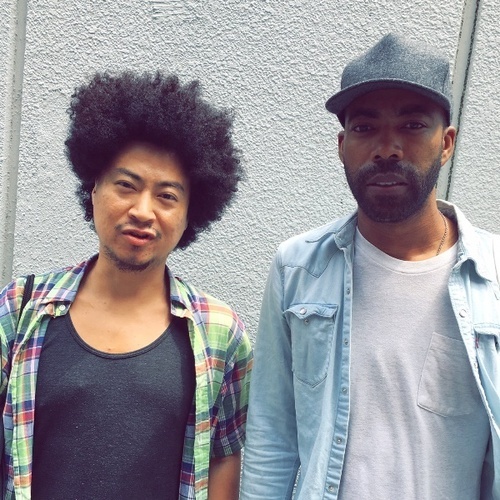
Corey’s approach is completely different
――Seen through your eyes, Kuroda-san, what was your impression of Corey back in your college days?
Kuroda: He’s one year younger, but I thought he was incredible already. Trombones tend to become rough, in a way. Many trombonist seem to enjoy playing their instruments in a New Orleans-like manner or play out these bluesy phrases in all loudness with their faces all red, but that’s not what Corey does. He plays these complicated tunes like he’s breathing, just like that. He definitely was this great rookie already.
――You can take a look at other pros in the field, but you can tell how skilled and on-top he is.
Kuroda: Absolutely. The approach is completely different. He says he tried to sound like someone, but to me, I can’t tell who that ‘someone’ is, to be honest. He sounds nothing like anyone.
――What were the things you had in mind to get hold of your unique methods of rendition?
King: I was more into trying to play like other instruments. I love Joe Henderson* and I love his music, and I knew that I couldn’t sound like J. J. Johnson playing a Joe Henderson song. I couldn’t be that convincing. I had to play different to be able to play modern music.
*Joe Henderson was a tenor saxophonist who is regarded one of the leading players of the new mainstream of the 60s, along with Wayne Shorter. Born 1937, died in 2001.
――But isn’t a trombone a challenging instrument to play like that?
King: It is. That time was me trying to find my way of sounding like another instrument. …I thought it did sound like another instrument (laughs). I don’t know. It’s challenging in a way, yes, but there are ways around it.
――You make it sound so simple. You mentioned Joe Henderson as an example, but did you try to sound like instruments that are not necessarily horns or wind instruments?
King: Yeah. Let’s see, I like Sarah Vaughan – she’s a singer, and the way she sang phrases and they way she had a good understanding of harmony… You would hear it in her voice when she scats and thing like that, and she was definitely someone I listened to a lot.
――Through your eyes, Corey, what are the strong points of Takuya Kuroda as a musician?
King: Taku is definitely one of the composers I’m thinking about when I’m writing. Really strong melodies, really strong progressions. To me, when I hear his music and when I’m playing his music, well I know because I’m actually reading the music, but he has a way of inviting people – he’s leaving the door open for people to walk through. I have a problem when some writers are not doing that, and just putting a wall up and expecting people to climb up the wall. Sometimes, people don’t have the energy for that. But the music is really complex and moving. And of course he’s a masterful trumpeter.
Kuroda: (Taking a 10,000JPY note out from his wallet,) we can have more of that.
King: (Laughs)

